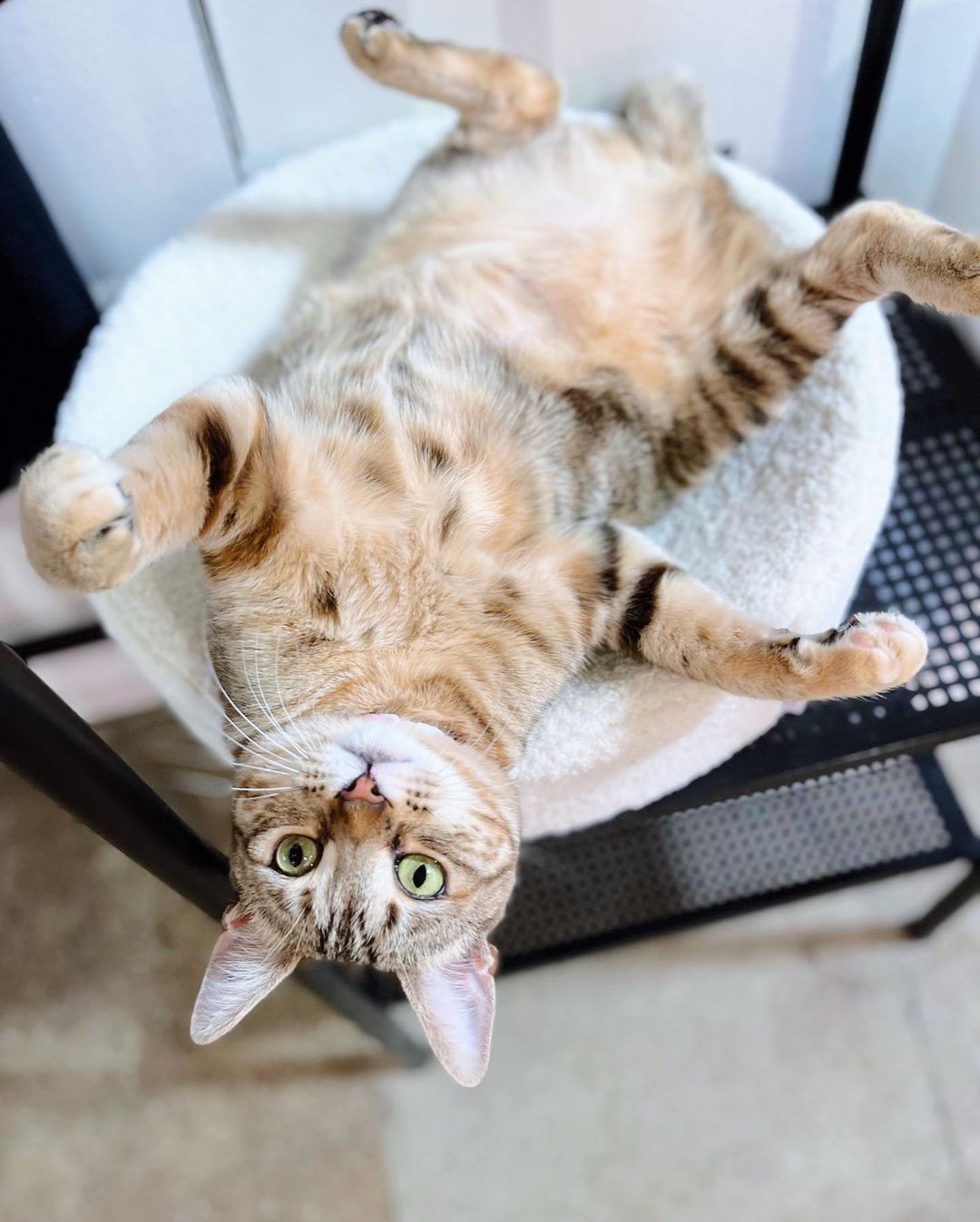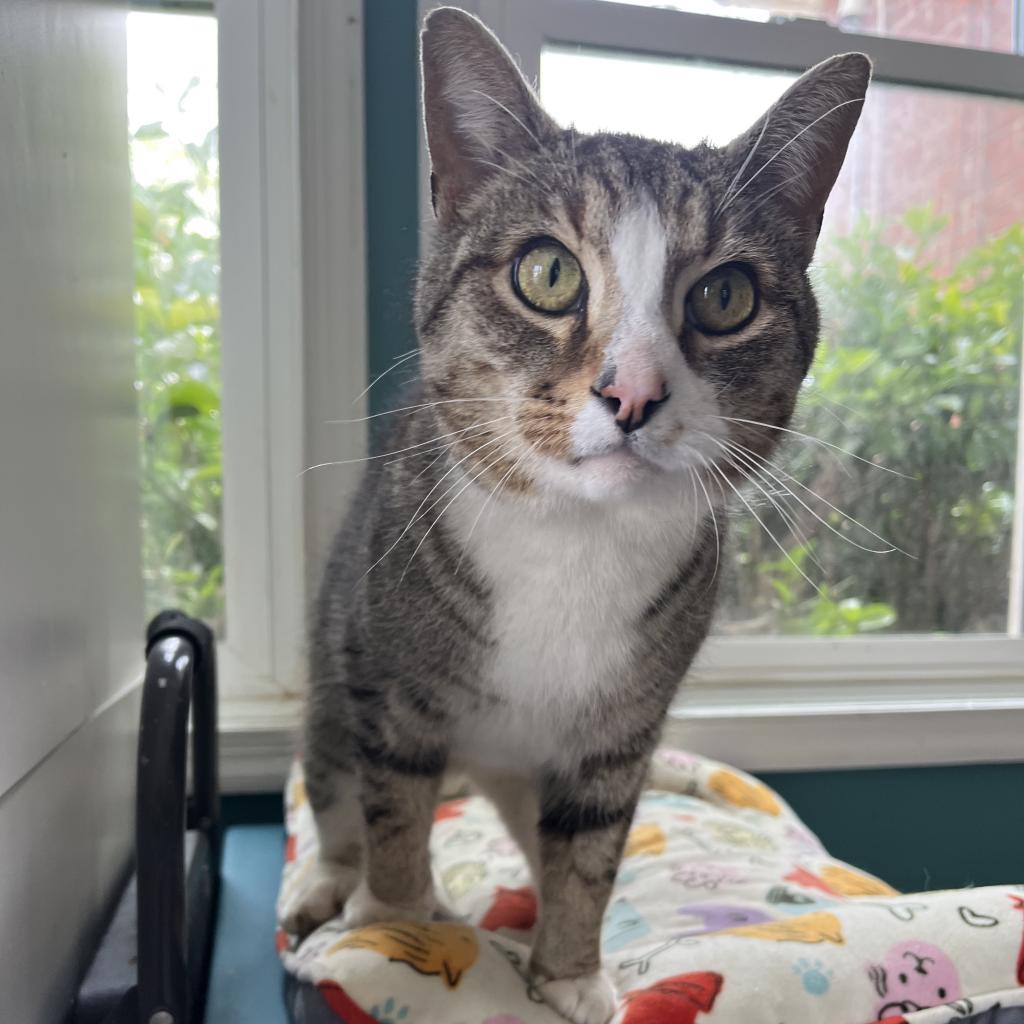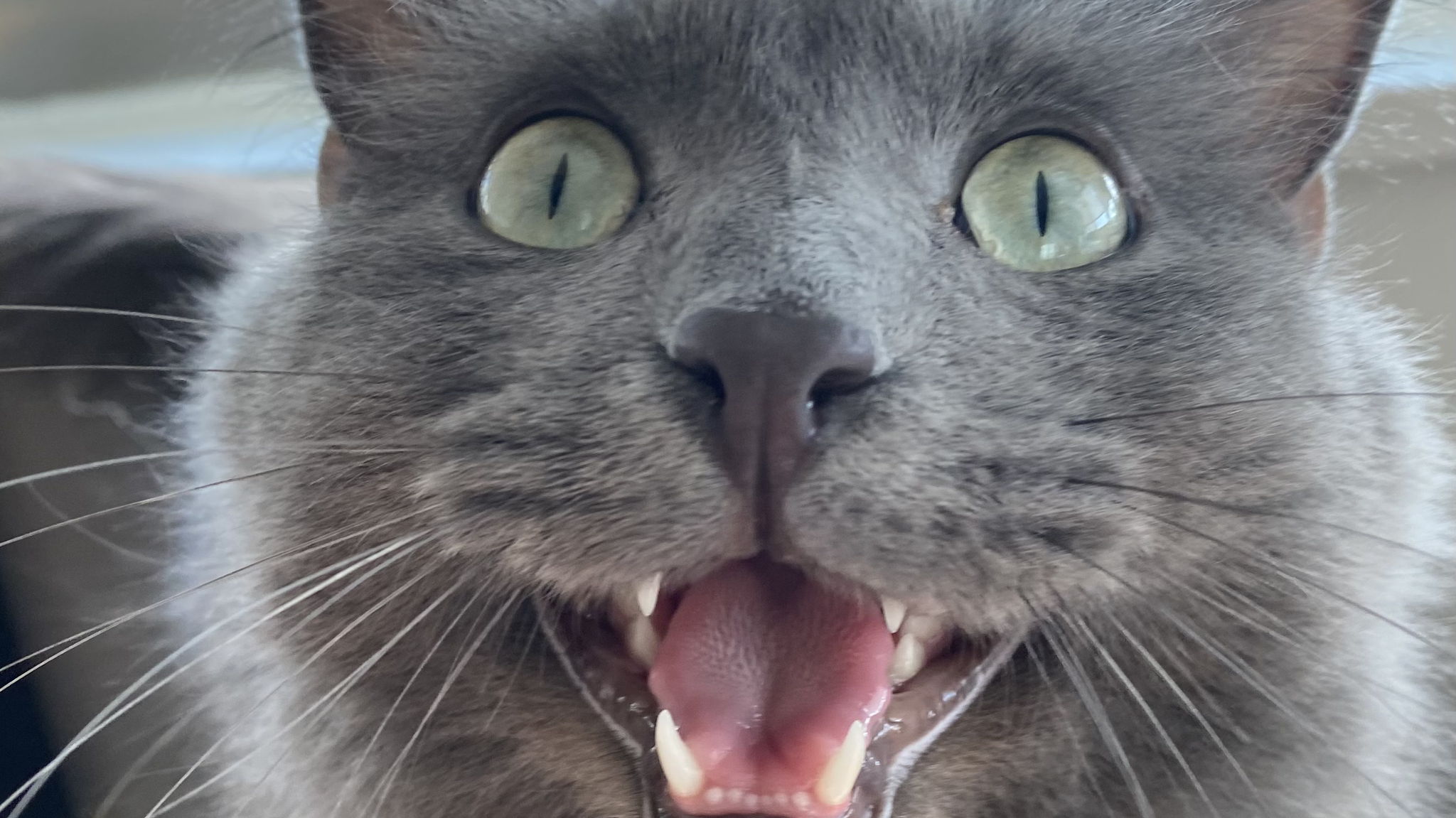Excessive Meowing HOMEWARD TRAILS RESOURCE LIBRARY: CATS!

Is your cat is driving you mad meowing nonstop for food? Or, maybe he is waking you at 3 a.m. with his special song ? Read on!
This information is courtesy of the San Francisco Cat Behavior Helpline.

Though cats communicate mostly by body language, some cats “talk” more than others. This is probably in part genetic (some breeds, such as the Siamese, are especially prone to this) and part learned behavior. Your cat may have learned that if she meows, people will talk to her, play with her, feed her, or even yell at her. Remember for some cats negative attention is better than none at all. Some owners love to “talk” with their cats, back and forth, so if you have adopted your cat as an adult, it is possible that this behavior was encouraged by a prior owner.
If you have brought Kitty up, then most likely you can think of things that have “rewarded” this behavior. Cats learn to communicate with us, just as we learn to communicate with them. Maybe when the litter box is dirty, your cat draws your attention to it by walking around and meowing, and so you clean the box. This is how behavior patterns start. Cats also meow to express discomfort or pain, agitation, and in some cases, territoriality. Unneutered (intact) male cats may yowl in conjunction with sexual behavior, and female cats in heat may meow excessively as well. If you have a chatty cat, how can you stop or at least curb this habit?
Reward
This should be the backbone of your behavior modification plan. Pay attention to your kitty when she is being quiet, wait for a moment of silence before you feed her. Ignore her when she meows. If you are having trouble sleeping at night, you can try earplugs, or pulling the cover up over you head! Or you could close the door to your bedroom. Remember that if you break down and give your kitty attention, you will have to start all over again.
Cat’s Needs
Cats need attention and interaction, so make sure that somewhere in your daily schedule you allot times for play and petting. Cats like routine and will meow excessively if their routine is upset, so do try to do everything, especially if it’s cat related such as feeding and changing the litter box, on a set schedule as much as you are able. Provide your cat with stimulation. Keeping your cats indoors is much safer, but they will need to be entertained and encouraged to exercise. Even indoor-outdoor cats need owner interaction and stimulation. New toys, bought or made, food cubes that make Kitty work to get her food, and the occasional catnip toy help keep her from getting bored. Interactive playtime is the best kind of playtime for cats- toys like fishing-pole toys that your cat can chase could be integrated into a daily routine. Make sure your cat has a clean litter box, and fresh water at all times. Make sure her diet is adequate. If she seems hungry all the time, consult with a veterinarian knowledgeable about nutrition to see if some supplementation would help.
Patient
It takes time for cats to learn behaviors, and often takes even more time to unlearn them. In order to make a change in your cat’s meowing, you need to be very consistent and give your cat time to adjust.
With It
You may be able to reduce the amount of attention-getting meowing or feeding-time meowing by ignoring, and feeding and playing at set times, but this will not cure a hard-core talker such as some Siamese or Siamese mixbreeds are. These behaviors are characteristic of some breeds, and are not likely to go away in their entirety. Contact a cat behavior specialist to make sure you have tried all possible solutions first- for exteme cases, in short-term stress situations, a veterinarian may be able to prescribe anti-anxiety medication. If you have a situation that you are unable to cope with, rehoming your cat with an owner willing to deal with this behavior may be a last resort.
If your cat is being vocal mostly/only when you go to bed: If your cat is trying to keep you awake at night there are several steps you can take to address the problem. First, try wearing your cat out before bed by having him play, chase a laser light or toy. A tired cat will usually not have the energy to keep you up! Also, try feeding you cat wet food before bed. A full belly often makes cats feel sleepy and thus, they will be less likely to stay up late meowing. Finally, try saving a super fun, toy for bedtime only. This way, your cat will be self-entertained when you go to bed and less likely to focus on you!



